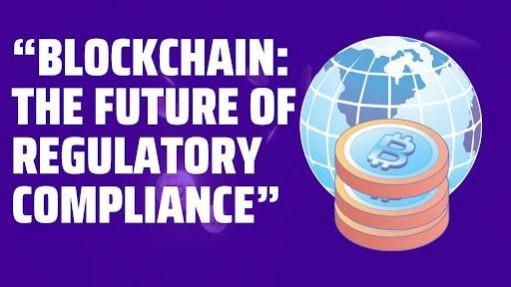
A New Era of Trust and Transparency Innovation is reshaping regulatory compliance, and blockchain technology is at the forefront of this transformation. Amarnath Reddy Chandra, a distinguished researcher, explores how blockchain enhances transparency, security, and efficiency in compliance processes across industries. His work sheds light on groundbreaking developments that are set to redefine the future of compliance frameworks.
Reinventing Compliance with Distributed Ledgers
Traditional compliance systems rely on centralized data storage and manual verification, leading to inefficiencies and security vulnerabilities. Blockchain introduces a decentralized ledger system that records and verifies transactions in real time, reducing processing times and eliminating human errors. By leveraging cryptographic security, blockchain ensures that data remains immutable, enhancing regulatory trust and accountability.
Smart Contracts: Automating Compliance
One of the most significant innovations in blockchain technology is the implementation of smart contracts. These self-executing digital contracts automatically enforce compliance regulations, reducing manual intervention. Studies show that smart contracts have decreased compliance verification times from hours to minutes while significantly lowering error rates. This innovation streamlines financial reporting, supply chain audits, and healthcare regulations, making compliance more reliable and cost-effective. Smart contracts eliminate intermediaries, enhance transparency, and revolutionize cross-industry regulatory frameworks.
Enhancing Financial Security
Financial institutions face stringent regulatory requirements, especially in areas like anti-money laundering (AML) and know-your-customer (KYC) protocols. Blockchain-powered compliance systems offer automated validation, reducing processing times from weeks to mere days. Additionally, the technology minimizes false positives in fraud detection and accelerates cross-border transaction reconciliations, making global financial operations smoother and more secure.
Revolutionizing Supply Chain Transparency
Ensuring compliance in supply chains has historically been complex due to multiple stakeholders and global regulations. Blockchain addresses this challenge by providing an immutable record of transactions, enabling real-time verification of product authenticity and regulatory adherence. Companies adopting blockchain-based compliance frameworks have significantly reduced documentation processing times and improved traceability across their supply networks.
Transforming Healthcare Compliance
Healthcare institutions handle sensitive patient data that require strict regulatory compliance. Blockchain ensures the integrity of electronic health records (EHRs) by providing tamper-proof audit trails and automated compliance checks. This technology enhances HIPAA verification, reduces administrative costs, and ensures seamless data sharing between healthcare providers while maintaining stringent security standards.
The Rise of Layer 2 Scaling Solutions
With the growing adoption of blockchain, Layer 2 scaling solutions have emerged to improve transaction speeds and efficiency. These advancements optimize data processing, reducing compliance verification costs and enhancing scalability. Zero-knowledge rollups and optimistic rollups are among the latest innovations enabling enterprises to integrate blockchain technology without compromising performance or security.
Security and Governance in Blockchain Compliance
As blockchain adoption increases, ensuring security remains a top priority. Multi-signature authentication, hybrid encryption, and automated security audits play crucial roles in protecting compliance data. Organizations implementing structured governance frameworks report improved regulatory adherence and reduced risk of cyber threats. These security enhancements position blockchain as a trusted solution for compliance automation.
Future Innovations: AI and IoT Integration
Blockchain is evolving beyond its current capabilities with the integration of artificial intelligence (AI) and the Internet of Things (IoT). AI-driven compliance monitoring can detect anomalies in real time, improving fraud detection and risk assessment. Meanwhile, IoT sensors linked to blockchain networks provide real-time compliance tracking, particularly in supply chain management and environmental monitoring.
In conclusion, Blockchain is no longer a speculative technology; it is a fundamental shift in how compliance is managed. Industries adopting blockchain-based compliance systems are witnessing transformative improvements in efficiency, accuracy, and security. As organizations continue to explore its potential, structured implementation strategies will be key to maximizing its benefits. Amarnath Reddy Chandra underscores the necessity of embracing blockchain for a future where compliance is seamless, secure, and transparent.















